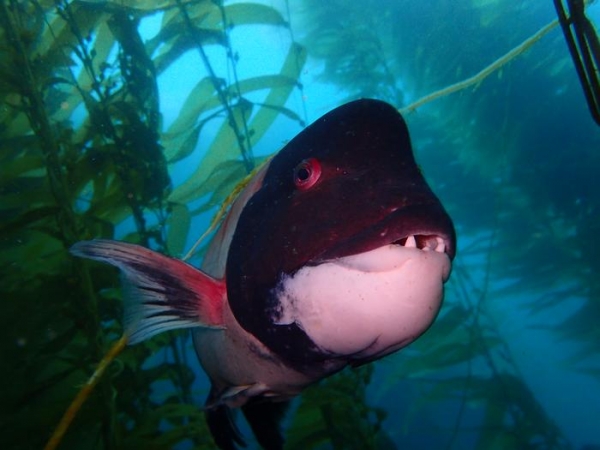Rising ocean temperatures are sweeping the seas, breaking records and creating problematic conditions for marine life. Unlike heatwaves on land, periods of abrupt ocean warming can surge for months or years. Around the world these ‘marine heatwaves’ have led to mass species mortality and displacement events, economic declines and habitat loss. New research reveals that even areas of the ocean protected from fishing are still vulnerable to these extreme events fueled by climate change.
A study published today in Global Change Biology, led by researchers at UC Santa Barbara, found that while California’s network of marine protected areas (MPAs) provide many social and ecological benefits, they are not resilient to the effects of ocean warming. MPAs are locations in the ocean where human activities such as fishing are restricted to conserve and protect marine ecosystems, habitats, species and cultural resources. The study, part of a 10-year review of California’s MPA network conducted at UCSB’s National Center for Ecological Analysis & Synthesis (NCEAS), found that marine heatwaves impact ecological communities regardless of whether they are protected inside MPAs.
Read more at: University of California - Santa Barbara
California Sheephead (Photo Credits: Chris Honeyman)


